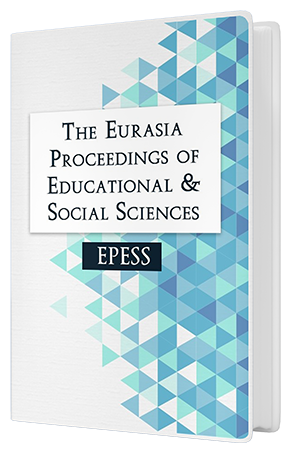IDENTIFYING CONSTRUCTS OF WEBQUEST LEARNING AS PERCEIVED BY PROSPECTIVE ELEMENTARY TEACHERS THROUGH DESIGN PROCESS
Keywords:
WebQuest learning, design process, prospective teachersAbstract
The aim of this study was to explore prospective elementary mathematics teachers’ perspectives on WebQuest learning through the design of topics in elementary mathematics. The data sources included prospective teachers’ written responses to the assignments developed for forming their opinions and understanding how they perceived the WebQuest learning process. 48 prospective teachers were participated in this study. Participants’ written responses were analyzed according to three underlying constructs of WebQuest learning affecting teachers’ perceptions: constructivist problem solving, social interaction, and scaffolded learning. While designing WebQuest, findings revealed that most of the responses addressed making real-life connections in WebQuest learning. Moreover, prospective teachers were aware of the importance of transferring knowledge from different fields (art, science, and architecture etc.), developing better interpersonal and small group skills, and facilitating mathematical content comprehension. Methodological and practical recommendations were provided for further studies to highlight primary factors and constructs of the WebQuest learning.Downloads
Published
Issue
Section
License
Copyright (c) 2016 The Eurasia Proceedings of Educational and Social Sciences

This work is licensed under a Creative Commons Attribution-NonCommercial-ShareAlike 4.0 International License.
The articles may be used for research, teaching, and private study purposes. Any substantial or systematic reproduction, redistribution, reselling, loan, sub-licensing, systematic supply, or distribution in any form to anyone is expressly forbidden. Authors alone are responsible for the contents of their articles. The journal owns the copyright of the articles. The publisher shall not be liable for any loss, actions, claims, proceedings, demand, or costs or damages whatsoever or howsoever caused arising directly or indirectly in connection with or arising out of the use of the research material. All authors are requested to disclose any actual or potential conflict of interest including any financial, personal or other relationships with other people or organizations regarding the submitted work.




